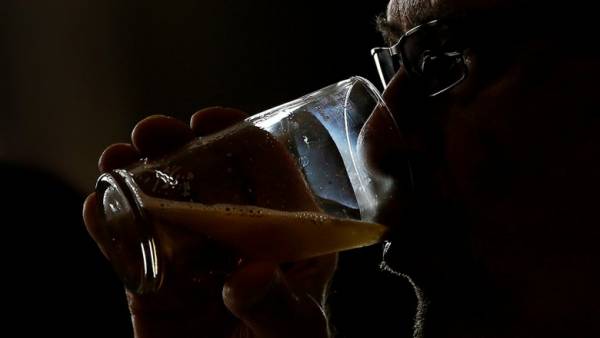Russia has banned the “dry alcohol.” The more dangerous it is
TASS-FILE. 8 January Russia comes into force a law banning the production and circulation of “dry alcohol.”

Dry or alcohol powder is a special powder that can be used to obtain alcoholic beverages (dilution with water) or as flavorings in cocktails.
History and method of creating
“Dry alcohol” was first patented at the end of 1966 in Japan by Sato Food Industries. A similar patent was issued in the U.S. in March 1974 General Foods Corporation. The process of making the powder is to encapsulate (“gripe”) at the molecular level of alcohol in the tiny fraction using the derivatives of the starch — dextrins or molasses. The result is a dry substance in the form of a powder, which when diluted with water becomes the drink again.
As a rule, is distributed in bags weighing about 30 g, which is diluted in a glass of water. When mixing the powder substance with water to obtain an alcoholic beverage with the characteristics of vodka, rum, and various cocktails.
Distribution in the world
Currently, the only fully legal market for powdered alcohol is Japan, where it is equalized with the usual alcohol, its sales amount to 1% of the total sales of alcoholic beverages.
In some countries, powdered alcohol is often banned at the regional level due to insufficient knowledge of its effects on the human body.
In Germany or the US, it spread across the Internet, using loopholes in the law, where usually refers to alcohol only liquid.
Health hazard
In June 2015, the CPS said about the potential dangers of the use of “dry alcohol” to human health. The greatest risk is that the consumer can dissolve in a glass of water not one but several bags, in that case, the consumption of the drink can lead to alcohol intoxication and burn mucous membranes. Also a high risk when used in dry powder form through inhalation.
December 1, 2015 was published the order of the Prime Minister Dmitry Medvedev “On approval of the plan of measures on stabilization of the situation and development of competition in the alcohol market.” Among the proposed measures in the plan was declared to ban the sale of “dry alcohol” on the territory of the Russian Federation and the Eurasian economic Union (EEU). 10 December 2015 the Moscow city Duma submitted to the state Duma the draft law “On amendments to the Federal law “On state regulation of production and turnover of ethyl alcohol, alcoholic and alcohol-containing products and about restriction of consumption (drinking) of alcoholic products” (regarding the ban on the production and turnover of alcohol-containing products in dry form)”.